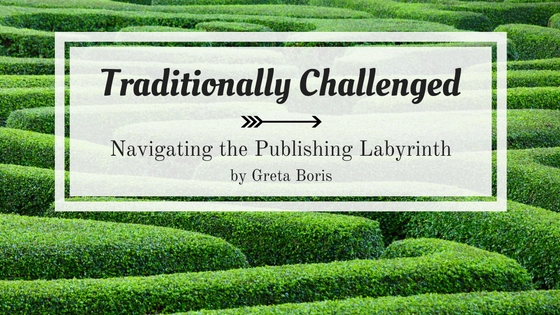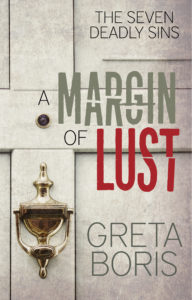by Greta Boris
Have you ever worried about being too transparent with your email list? Boring your followers with your personal history? Looking unprofessional by over-sharing?
If you answered yes to any of those questions, transparency probably isn’t your problem.
It’s the old adage, crazy people are the last ones to think they are. Selfie-divas don’t see anything wrong with plastering the internet with their faces.
Most of the writers I know love to hide behind their computers and book covers. Especially fiction authors. Some say it’s because we’re often introverts. Maybe that’s part of it. But I’m not an introvert, and I’ve been very reluctant to mix my professional and personal lives. It seems, well, unprofessional.
I’ve read all the same articles you have about being transparent.
I’ve heard the stats. Open rates are higher and engagement is greater when authors open up a bit. Yet, it was hard for me to believe. If I was Stephen King or Nora Roberts or James Patterson they’d care. But I’m not.
Enter Kevin Tumlinson. I mentioned to him before we began recording a podcast that I had to take my dog to the doggy dentist. We’d had a scary situation in which the bacteria in her mouth reached such cosmic levels that her jaw muscles began to attack themselves. Kevin suggested I share the story with my followers as an experiment.
I wrote an article called Dogs, Anchorites, and Angels in the Attic.
In it I talked about my dog’s problem among other things. I let people know I’d had a scare with my pooch and put a link to the article in my newsletter. I also shared the article on several Facebook pages and on Twitter.
The results:
- I had four times the number of clicks on that article than on anything else in my newsletter except for a Kindle Giveaway program I was a part of, which hardly counts.
- I also had about five times the engagement on Facebook compared to my other “author-y” kinds of posts. New book covers being the only exception.
Just for fun, I paid $10 to boost the post to see what happened. Nada. Nothing.
What did this tell me?
The people who followed me were interested in my life, my dog, my problems. People who didn’t know me—i.e., random Facebook people—could care less.
Speaking of being transparent, I helped throw a multi-author event at a vineyard on Mother’s Day weekend. Not as many people attended as I would have hoped for a variety of reasons, but I learned a lot.
The results:
- After authors were interviewed in panel discussions, people bought their books.
- When I stood at my book table and told people how my stories related to my life, what inspired them, and why I wrote them, they bought books.
- The more excited about my work I was the more excited they were. Many people bought sets, wanted to be put on my email list and asked if I’d come to visit their book clubs.
Sometimes, probably like you, I get lonely. I spend a lot of time in my office at my computer with my fictional friends. There’s nothing that puts a smile on my face like a positive human interaction. I don’t think I’m unusual in this. Often the more “friends” a person has on Facebook the less they have in real life, and they’re lonely too.
I’m rethinking my marketing.
I’m not planning to give up nagging my publisher to run Amazon Ads, apply for BookBubs and run other forms of advertising, but I have decided to make some changes in my marketing approach.
I’m trying to be more personal in my newsletters and on social media. My marketing manager and I have come up with a plan to reach out to local book clubs. I’m attempting to do more in-person events. I’ve created an early review team and a Facebook Readers Club I’m working to grow.
Forging relationships is more intimidating and more time consuming than running a Bargain Booksy ad. But treating our readers as individuals instead of stats on a Kindle report is a good thing. It might be a slower way to grow our careers, but I believe those careers will be stronger.
Mushrooms grow overnight. Oak trees take years. What do you want to be a mushroom or an oak tree?
How transparent are you? Does it make you uncomfortable? Come on, you can tell me.
***
 Greta Boris is the author of the 2017 releases, A Margin of Lust, The Scent of Wrath, and The Sanctity of Sloth (Coming this August) the first three books in her 7 Deadly Sins domestic suspense series. Her nonfiction work includes the Amazon Bestseller The Wine and Chocolate Workout – Sip, Savor, and Strengthen for a Healthier Life and Aspiring to Author – A Guide for Your Publishing Career. She’s also the Director of O.C. Writers, a community of over 1,000 published and aspiring authors in Orange County, California.
Greta Boris is the author of the 2017 releases, A Margin of Lust, The Scent of Wrath, and The Sanctity of Sloth (Coming this August) the first three books in her 7 Deadly Sins domestic suspense series. Her nonfiction work includes the Amazon Bestseller The Wine and Chocolate Workout – Sip, Savor, and Strengthen for a Healthier Life and Aspiring to Author – A Guide for Your Publishing Career. She’s also the Director of O.C. Writers, a community of over 1,000 published and aspiring authors in Orange County, California.
You can visit her at http://gretaboris.com. She describes her work (and her life) as an O.C. housewife meets Dante’s Inferno.




Wow. Interesting analysis. It will make me rethink how I present myself for sure. I am not an introvert, and am very real when in person. But…I am careful about my family and personal life. That is private. (When I am a famous writer, I don’t want stalkers to know too much about my private life. Ha ha!) But in all seriousness, when you put yourself out there, you have to be careful. There is fine line, and I think what you are saying is not so much about sharing your personal life, but it is about being personal. Thanks for sharing.
Aristotle’s “mean between extremes” seems to be a good guide. “So I lost my little dog Scooter last year…” is safer than “My daughter in Burbank…” when we get personal online or elsewhere.
I think we’re all desperate to find the thread of connection, or maybe we’re looking for answers and we try to find those answers in other people’s personal stories. Hearing about your doggy’s dental distress made me think about my little Scooter, and I instantly connected.
THE CONNECTION – It’s all so much more than it appears, right? That’s the thought I walk away with from this excellent piece, Greta.